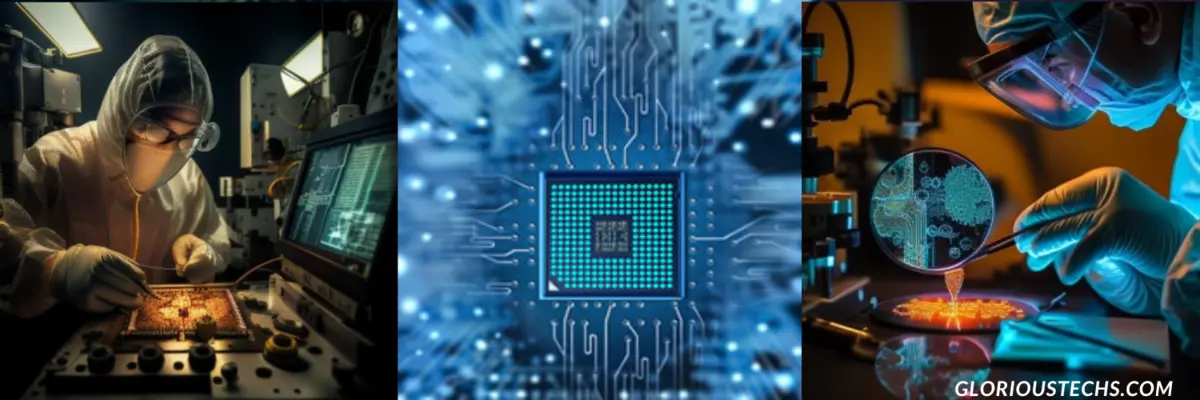Nanotechnology is a rapidly growing field that is having a significant impact on many different industries. From medicine and healthcare to electronics and materials science, the advancements and applications of nanotechnology are far-reaching and varied. In this blog post, we will explore some of the key ways in which nanotechnology is changing the world we live in.
One of the most promising areas of nanotechnology is in medicine and healthcare. By creating nanoparticles that can target specific cells or tissues in the body, scientists are able to deliver drugs more effectively and with fewer side effects. This can greatly improve the effectiveness of treatments for cancer and other diseases. Additionally, nanotechnology is being used to create new and improved diagnostic tools, such as biosensors and lab-on-a-chip devices. These tools can detect diseases earlier and with more precision, leading to earlier treatment and better outcomes for patients.
Another area where nanotechnology is having a big impact is in electronics. By creating new and improved materials and devices at the nanoscale, scientists are able to improve the performance and efficiency of electronic devices. This can lead to the development of faster and more powerful computers, as well as new technologies such as flexible and transparent displays.
In addition to these medical and electronic applications, nanotechnology is also being used in materials science to create new and improved materials with unique properties. For example, researchers are using nanotechnology to create super-strong and lightweight materials, as well as new types of energy storage devices.
Despite the many potential benefits of nanotechnology, there are also some concerns about the safety and ethical implications of this technology. Researchers are working to address these concerns by studying the potential risks and developing safety guidelines for the use of nanotechnology in various applications.
In conclusion, Nanotechnology is a rapidly evolving field with far-reaching advancements and applications. From medicine and healthcare to electronics and materials science, the potential benefits of nanotechnology are truly impressive. However, it is important to continue research and development to ensure that the benefits of nanotechnology are fully realized while minimizing the potential risks.
Nanotechnology is also being used to improve energy production and storage. By creating new and improved materials at the nanoscale, scientists are able to improve the efficiency of solar cells and batteries, leading to more sustainable and cost-effective energy production. For example, researchers are using nanotechnology to create new types of solar cells that can convert a wider range of the electromagnetic spectrum into electricity, leading to higher energy efficiency. Additionally, scientists are using nanotechnology to create new types of batteries with greater energy density and longer lifetimes, which can be used in a wide range of applications from electric vehicles to portable electronic devices.
In the field of environmental science, nanotechnology is also playing a key role. By creating new and improved materials at the nanoscale, scientists are able to develop more efficient and effective methods for cleaning up pollutants, purifying water, and removing heavy metals from soil. For example, researchers are using nanoparticles to capture pollutants in water and soil, making them easier to remove. Additionally, scientists are using nanotechnology to create new types of catalysts that can be used in industrial processes to reduce the amount of pollutants produced.
In addition, new and improved products for plant growth and crop protection are being developed using nanotechnology in the agricultural sector. Scientists are able to come up with more sustainable and effective ways to protect crops from pests and diseases by making new and improved nanomaterials. Nanotechnology is also being used by researchers to develop novel growth enhancers and fertilizers that have the potential to increase crop yields and decrease the amount of resources required to grow crops.
In conclusion, Nanotechnology is a rapidly evolving field with far-reaching advancements and applications. From medicine and healthcare to energy production, materials science, environmental science and agriculture, the potential benefits of nanotechnology are truly impressive. However, it is important to continue research and development to ensure that the benefits of nanotechnology are fully realized while minimizing the potential risks. It is also important to keep in mind the ethical implications of the technology and ensure that it is used responsibly to benefit society.






